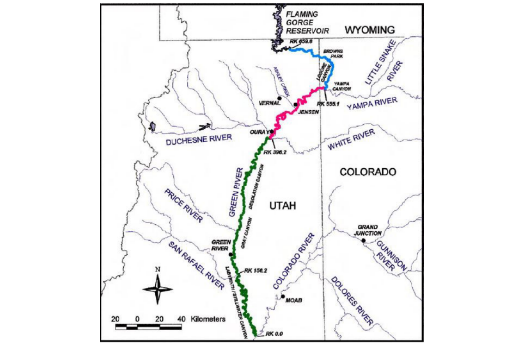A 10th Circuit three-judge panel affirmed on Monday a 2021 decision allowing Utah to draw water from Flaming Gorge Reservoir, rejecting the challenge from environmental groups that the decision was made without adequately considering the effects of climate change and drought. The 38-page opinion from Circuit Judge Timothy Tymkovich stated the following concerning the Green River water exchange: “Conservation Groups sued [the Bureau of] Reclamation and the U.S. Department of the Interior alleging violations of the National Environmental Policy Act and the Administrative Procedure Act. The district court found that Reclamation’s NEPA analysis was not arbitrary and capricious, that the agency took a ‘hard look’ at cumulative impacts, and that it properly determined that an Environmental Impact Statement was not required. In essence, the proposed action would merely change Utah’s point of diversion of water to which it is already entitled; it does not change or increase the amount of water to which Utah is entitled. We affirm. The record adequately demonstrates that Reclamation took a hard look at the proposed action and provided a reasoned explanation of its decision. In short, the agency concluded the exchange contract would not significantly affect the water or fish resources in the Green River Basin, and adequately explained the methodology and scope of its decision.” The Green River Block Water Exchange originates ultimately from a 1996 agreement as part of the Central Utah Project that states that “upon release from Flaming Gorge Reservoir, said water right can be developed, diverted and perfected by the State of Utah as permitted by law. The State of Utah agrees that if it stores water in or benefits directly from Colorado River Storage Project Facilities, the State of Utah will enter into a water service contract with the United States.” The Plaintiffs on the 10th Circuit Appeal are listed as the Center for Biological Diversity, Living Rivers, Colorado Riverkeeper, Utah Rivers Council, and the Sierra Club.




